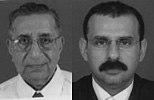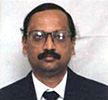
Is Exempt Income Really Taxable Under MAT?
CA Ankit Virendra Sudha Shah
After extensive research, the author makes out a strong case to contend that exempt income was never intended to fall within the concept of “book profits” in s. 115JB. He argues with convixtion that the judgement of the Special Bench of the Tribunal in Rain Commodities 41 DTR 449 which holds to the contrary requires reconsideration
Come year 2011 and the MAT provisions under the Income-tax Act, 1961 (‘the Act’) shall complete around two decades of its existence in various forms and with most recent one being Section 115JB of the Act. However, controversies surrounding the interpretation of said provisions fail to die down. Further, with preference of investment-linked deductions to profit-linked incentives, it is envisaged that more and more corporate will be subject to MAT provisions in near future. Out of the tax controversies so created, this Article seeks to discuss about the meaning and scope of ‘net profit’ under MAT provisions of the Act.
Explanation 1 to Section 115JB of the Act defines the word ‘book profit’ to mean ‘net profit’ as shown in the profit and loss account prepared as per Section 115JB(2) of the Act, and as further increased by the amount(s) mentioned in clauses (a) to (i) [Upward Adjustments] and as reduced by amount(s) covered under clauses (i) to (viii) to said Explanation 1 [Downward Adjustments].







